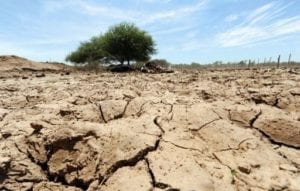By Liesl Frankson
In recent years we’ve been made aware that the global climate is changing and water is the primary medium through which climate change impacts the earth’s ecosystem and people. This is according to UN-Water. The organisation points out that higher temperatures and changes in extreme weather conditions are projected to affect availability and distribution of rainfall, snowmelt, river flows and groundwater, and further deteriorate water quality. We don’t have to look very far for evidence to support this claim. Many provinces in South Africa have been battling water shortages in recent years and earlier this year parliament put together a portfolio committee to assess the climate change implications for water.Just this week the eThekwini Municipality released a statement to the public, warning residents of an impending water shortage in the Hazelmere Dam as a result of inadequate rainfall caused by the El Nino weather pattern.
The municipality is considering water restrictions if the water levels in the dam continue to drop and it is concerned that residents haven’t responded positively to the warning. EThekwini Mayor, Councillor James Nxumalo, has urged the municipality to heighten campaigns to inform the community to save water.Ten innovative ways to save water
With this in mind it’s up to all South African’s to step up and make a difference. Here are some innovative water saving tips from the Arizona Water – Use It Wisely campaign.- While you wait for hot water, collect the running water and use it to water plants.
- Water audit your facility to find out your recommended water use, then monitor your utility bills to gauge your monthly consumption.
- Learn how to use your water meter to check for leaks.
- Have a plumber re-route your greywater to trees and plants rather than the sewer line. Check with your city and county for codes.
- Put food colouring in your toilet tank. If it seeps into the bowl without flushing, there’s a leak. Fix it and start saving gallons.
- When washing your hands, turn the water off while you lather.
- Set a kitchen or phone timer when using the hose as a reminder to turn it off. A running hose can discharge up to 10 gallons per minute.
- Install a rain sensor on your irrigation controller so your system won’t run when it’s raining.
- Use sprinklers that deliver big drops of water close to the ground. Smaller drops and mist often evaporate before hitting the ground.
- Minimise or eliminate the use of waterfalls and sprays in your pool. Aeration increases evaporation.








